Capt. Gail Harris reports from the Aspen Security Forum 2017 Day 2: CIA Director Mike Pompeo and Thomas Bossert, Assistant to the President for Homeland Security and Counterterrorism, discuss Iran, Syria and Russia.
Day 2 of the annual Aspen Security Forum did not disappoint. There was a ton of interesting topics but for the focus of this report I thought I’d concentrate on the talks by CIA Director Mike Pompeo and Thomas Bossert, Assistant to the President for Homeland Security and Counterterrorism. For a recap of Day 1, please check out yesterday’s report.
Director Pompeo’s session [full video] was moderated by Bret Stephens from the New York Times and was titled The View from Langley. Bossert’s was titled No Room for Error: Advising the President on Homeland Security and Counterterrorism. David Sanger, Chief Washington Correspondent, for the Times was the moderator for his session.
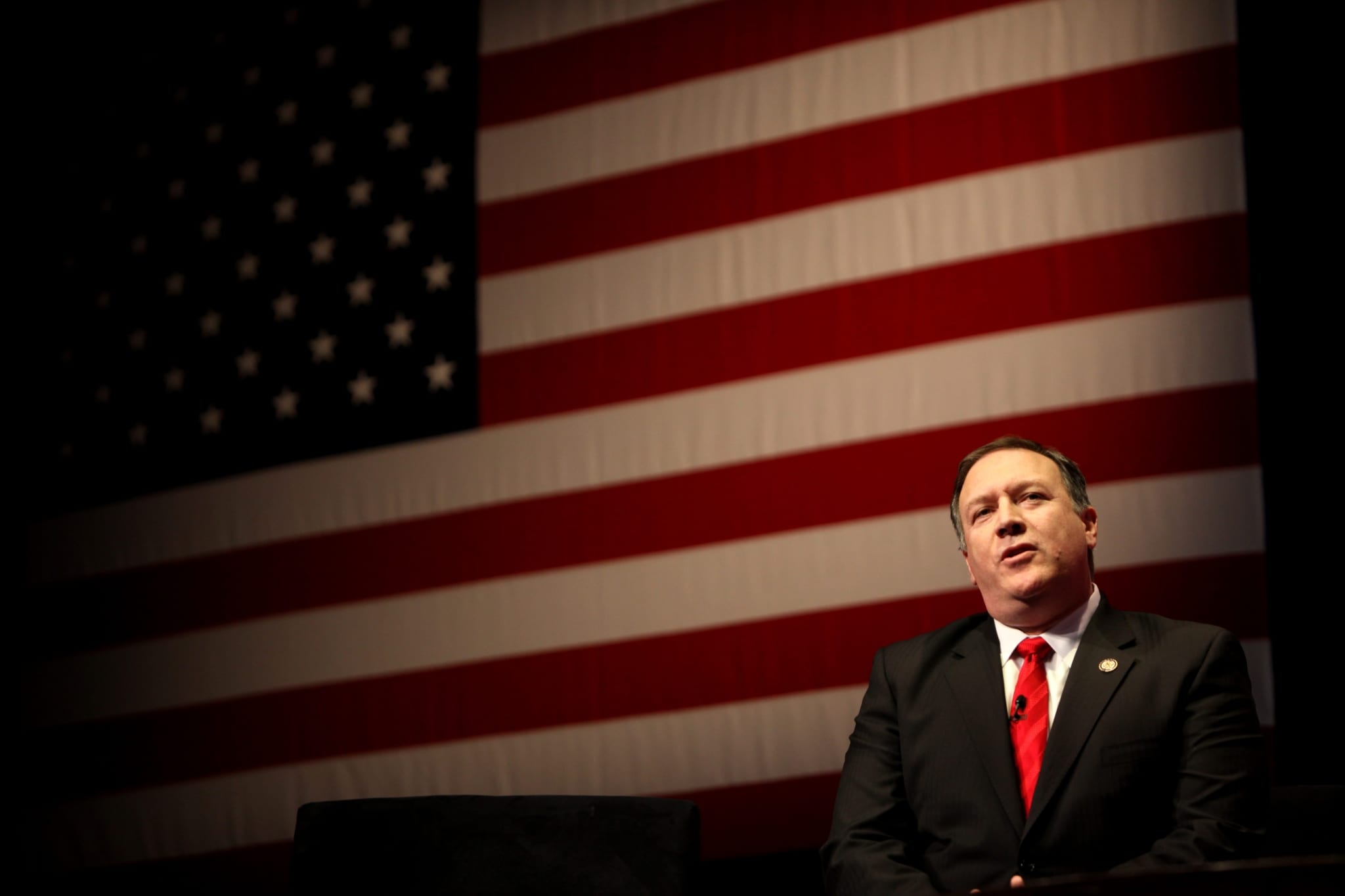
As I’ve written before, I believe we’re in an undeclared cyber war, where Russia has once again emerged as a major security issue. While we’re not yet in another Cold War, Russia is attempting to destabilize NATO, playing Pac Man with Hybrid Warfare, gobbling up and harassing portions of Eastern Europe while doing nasty things with cyber tools. Russia is also, once again, using its military to strike fear and raise concern, operating submarines off the coast of countries like Sweden, while flying military aircraft close to other nations’ airspace.
Terrorism is not just a problem in the Middle East, Europe, and the United States. It’s a worldwide issue. As but one instance, in Nigeria an ISIS allied terrorist group has caused the displacement of 2.2 million people.
One of the criticisms of President Obama’s administration was that it micromanaged Defense Department efforts. Early criticisms of the Trump administration are that it has no strategy and the President is disengaged, spending most of his time playing golf in Florida while firing off insulting tweets. Yet so far, the sense I’m getting from senior members of his national security team is that President Trump is more engaged than media reports indicate. CIA Director Pompeo said he sees the President every day, and every day he asks him about North Korea.
President Trump’s approach so far seems one of delegation, asking people working the issues to develop potential solutions and get back to him so he can decide what approach he wants to take. Time will tell how this works out. One question I won’t get an answer to this week will be if he listens and acts on the recommendations of his team, or takes off in unexpected directions which, of course, is his prerogative.
"I think our counterterrorism efforts haven’t worked." –@TomBossert45.
Read more takeaways from #AspenSecurity: https://t.co/aKYcGI9tvn
— Aspen Security Forum (@AspenSecurity) July 21, 2017
Thomas Bossert started off his talk by giving props to the two previous Presidential administrations, but also emphasized that although there were some tactical successes, he didn’t think our efforts have won. Bosssert indicated there were 17 – 18 failed states with a terrorism problem. He plans to concentrate on building on the efforts of the two previous administrations. Bossert indicated that the new administration will try “some new things but that doesn’t mean they will get everything right.” He said Trump has delegated authority and they are trying a decentralized approach. Some standards used by the previous administration will change.
Bossert stressed he would be focusing on what he called ISIS 2.0, or what ISIS will morph into after they lose geographic territory in Iraq and Syria. He wants to decentralize their efforts.
At this point in the discussion, David Sanger asked if he wanted to avoid civilian casualties. Bossert said he wanted to minimize civilian casualties. He went on to say that their approach will be to act as partners and didn’t plan to operate in a country without its permission. He said they will be going after terrorist networks and not just focus on individuals.
Iran
Concerning Iran, Bossert said, President Trump has made it clear that he considers the nuclear weapon treaty a bad deal and that Iran’s pattern of behavior is troubling. He hopes Iran is not working on its nuclear program, but they continue to be a state sponsor of terrorism. He wants additional financial sanctions.
Director Pompeo stressed in his opening remarks that Iran remains the world’s largest state sponsor of terror, and they now have a significant foothold in Syria. Pompeo discussed the threat from Hezbollah as an Iranian proxy force, and what he described as the Iranian expansionist goal “to control and be the kingpin in the Middle East.” Pompeo added that the new administration “is going to have the task of unwinding what we found when we came in.”
As for the Obama administration nuclear deal that was recently recertified by the Trump administration, Pompeo compared it to having a “bad tenant”, and that Iranian compliance with it was “grudging, minimalist, temporary with no intention of really what the agreement was designed to do.”
It’s the case [ISIS] is diminished, but threats from terrorism we’ll be working on for a long time explains @CIA Dir. Pompeo #AspenSecurity pic.twitter.com/0RLg6UERaU
— Aspen Security Forum (@AspenSecurity) July 21, 2017
Syria
Bossert addressed the notion of whether the Trump administration prioritized Bashar al-Assad’s removal. He doesn’t think he needs to say Assad must go first, but it’s imperative for him to correct the record. When asked about the same, Director Pompeo responded, “Secretary Tillerson made very, very clear that Assad is not a stabilizing influence in Syria … it is difficult to imagine a stable Syria that still has Assad in power.” Pompeo added, “he is a puppet of the Iranians and therefore it seems an unlikely situation where Assad will be sitting on the throne and America’s interests will be well served.”
Director Pompeo also phrased the situation in Syria from a Russian perspective, stating, “when the decision was made to allow the Russians to enter into Syria now, coming on four years ago, [it] fundamentally changed the landscape. And it’s certainly been worse for the Syrian people.” Pompeo phrased Russia’s interest in Syria (to laughter) as “they love a warm water naval port and they love to stick it to America.”
When asked about whether the Kurds are “friends” of the US, Pompeo responded, “You know it’s a complicated question … I don’t think you can speak about the Kurds as an individual element in any event, it’s much more complex.” Pompeo added, “suffice to say there are places we are definitely working alongside them and which they’re going to help us achieve the outcome that America wants.”
Russia
When asked, “how do you categorize Russia? Is Russia an enemy, adversary, frenemy or what of the United States?”, Director Pompeo responded, “it’s complicated.” Added Pompeo, “We live in a world where the Russians have a massive nuclear stockpile and are firmly entrenched in Syria … they’ve retaken Crimea, they have a foothold in Southeast Ukraine … America has an obligation to push back against that, not to allow that continued expansion that has taken place and to be serious in the way that we deal with them.”
When asked whether Russia intervened in the US election, Pompeo responded, “I have been asked it a million times, it is true, yeah of course. And the one before that, and the one before that, they have been at this a hell of a long time. And I don’t think they have any intention of backing off.”
This threat is real. US gov’t, including @CIA, has to find ways to fight back. @CIA Director Pompeo on #Russia & US Elections #AspenSecurity pic.twitter.com/HiyG5DFLb7
— The Aspen Institute (@AspenInstitute) July 21, 2017
It’s my intent in these brief notes to give you highlights of what the speakers said during their talks. In the days after the forum ends, I’ll probably write about my opinion of some of these issues.
Think I’ll end here. More highlights to follow.
Gail Harris, Lima Charlie News
[Edited by Anthony A. LoPresti]
Captain Gail Harris (U.S. Navy, Ret.), was the highest-ranking African American female officer in the US Navy at the time of her retirement in 2001. Her 28 year career in intelligence included hands-on leadership during every major conflict from the Cold War, to El Salvador, to Desert Storm, to Kosovo, and she was at the forefront of one of the Department of Defense’s newest challenges, Cyber Warfare. Gail also writes for the Foreign Policy Association, is author of “A Woman’s War”, serves as Senior Fellow for the George Washington Center For Cyber & Homeland Security and is a Senior Advisor for the Truman National Security Project.
Follow Capt. Harris on Twitter @GailHarrisLC
Lima Charlie provides global news, insight & analysis by military veterans and service members Worldwide.
For up-to-date news, please follow us on twitter at @LimaCharlieNews
Full video here:
In case you missed it:

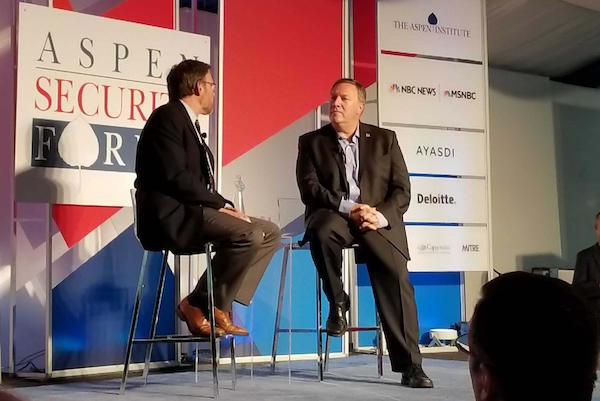
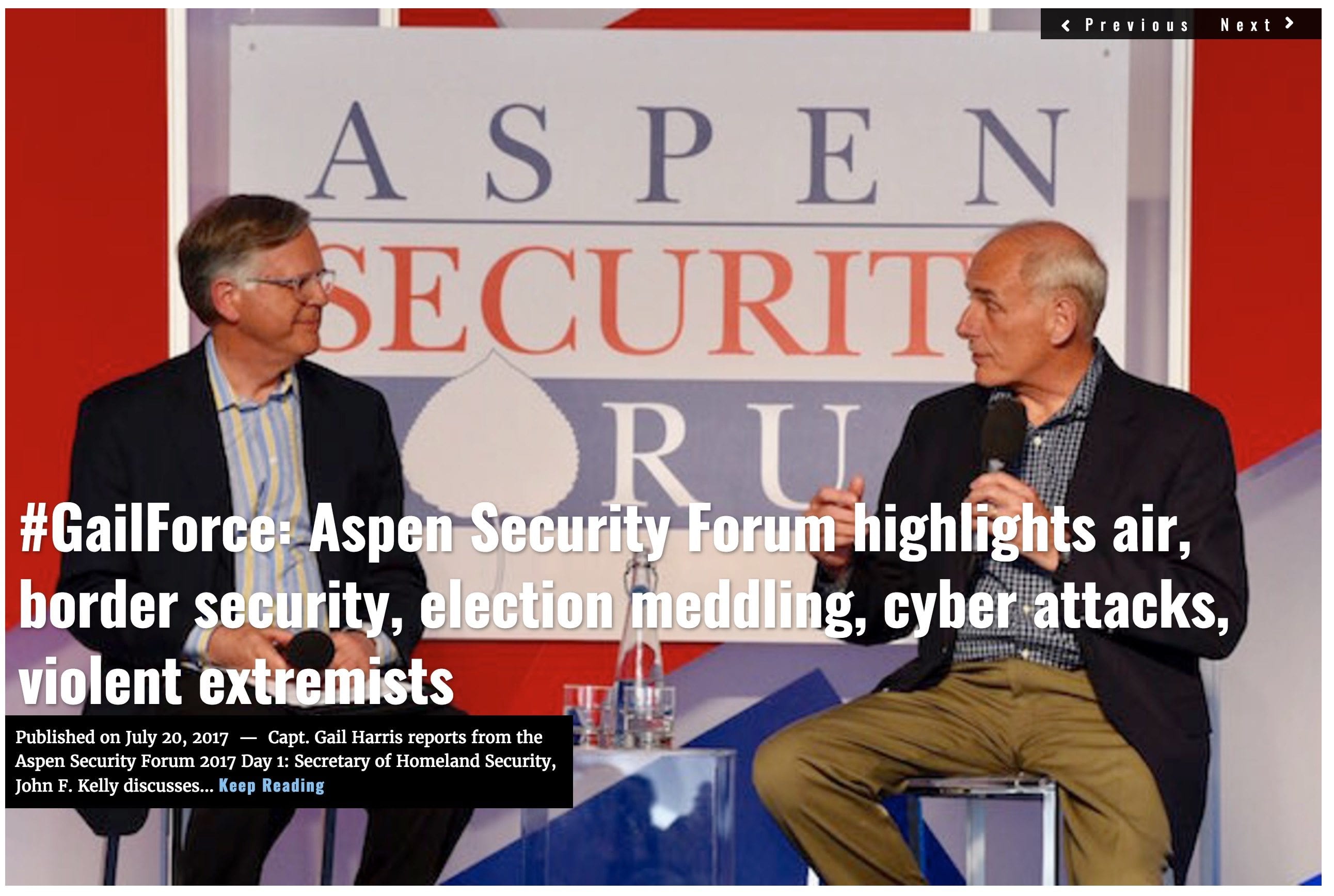
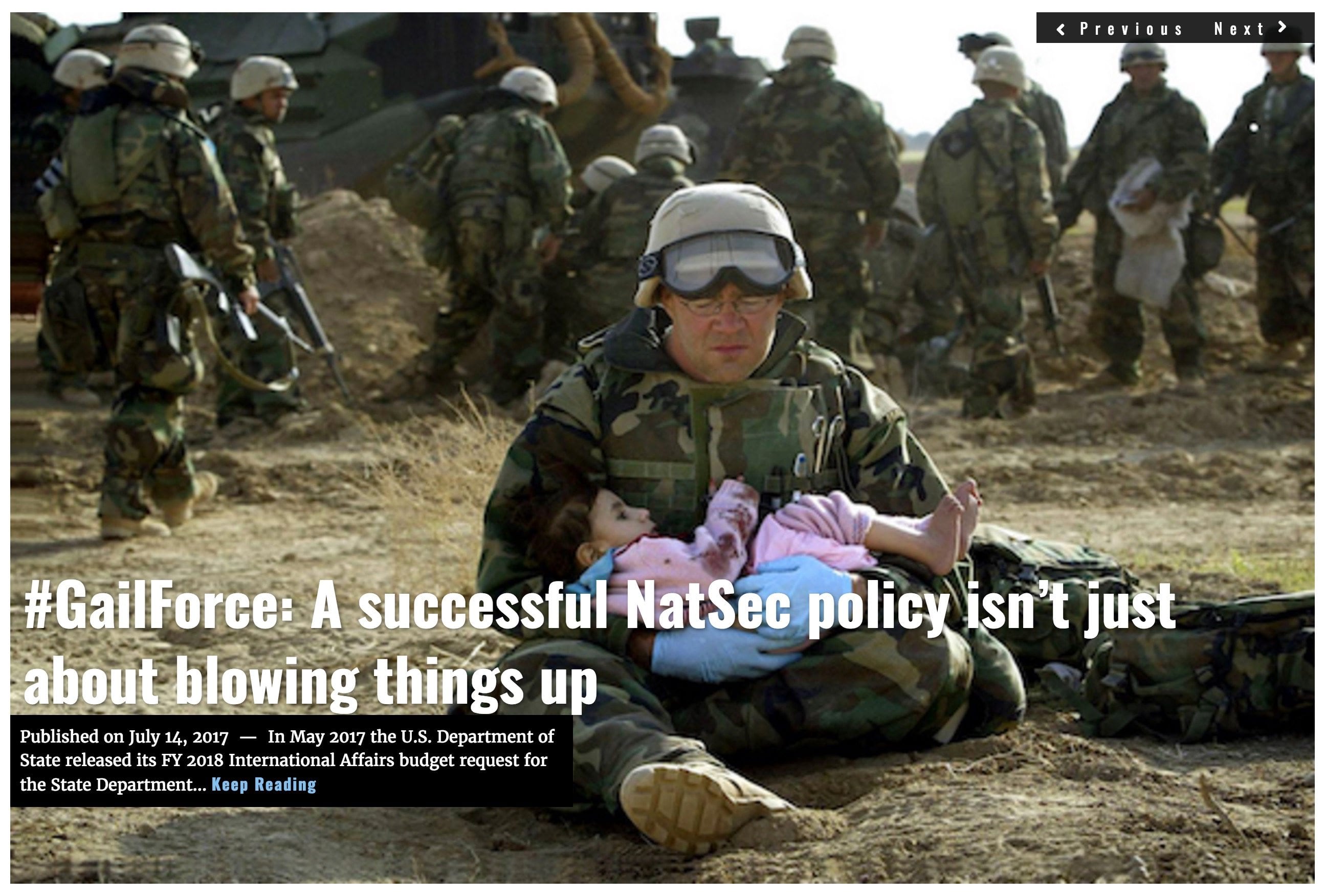
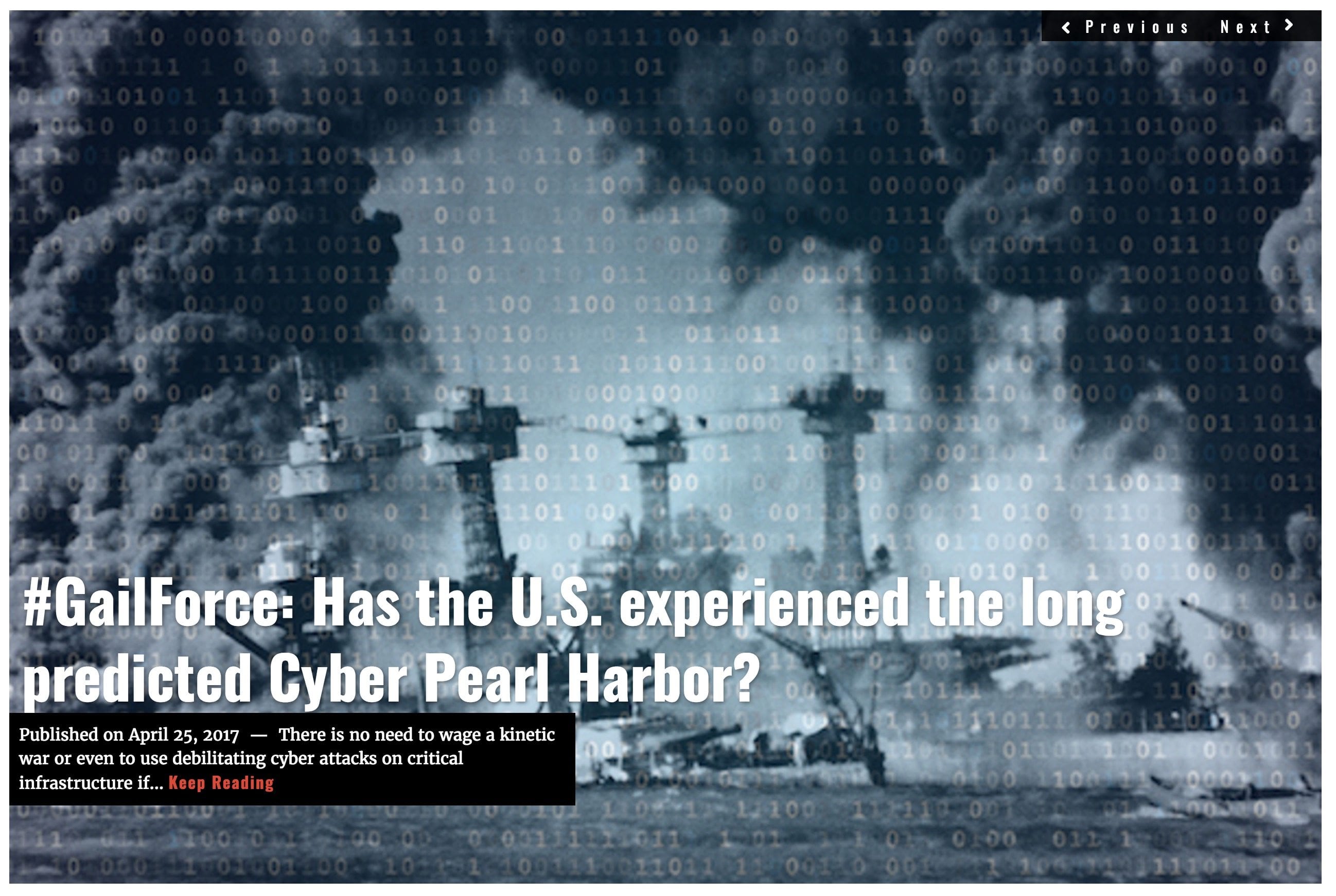
![Image GailForce to Space Force: 'Make it so' - the Space Force debate continues [Lima Charlie News]](https://limacharlienews.com/wp-content/uploads/2019/05/Space-Force-01-480x384.png)
![Image War in Eastern Ukraine and the New Heroes of ‘Novorossiya’ (New Russia) [Lima Charlie News]](https://limacharlienews.com/wp-content/uploads/2019/04/Donbass-MAIN-01-480x384.png)
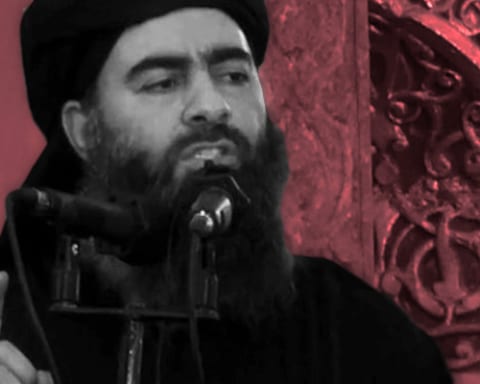
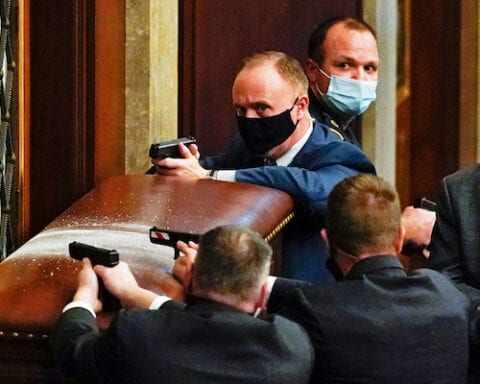


![Image Memorial Day may soon be a remembrance of democracy and those who had the courage to defend it [Lima Charlie News]](https://limacharlienews.com/wp-content/uploads/2018/05/Memorial-Day-may-soon-be-a-remembrance-of-democracy-and-those-who-had-the-courage-to-defend-it-Lima-Charlie-News-480x384.png)
![The Mind of Bolton - AUMF and the New Iran War [Lima Charlie News]](https://limacharlienews.com/wp-content/uploads/2019/05/Inside-the-mind-of-Bolton-Lima-Charlie-News-main-01-480x384.png)
![Image GailForce to Space Force: 'Make it so' - the Space Force debate continues [Lima Charlie News]](https://limacharlienews.com/wp-content/uploads/2019/05/Space-Force-01-150x100.png)
![Image War in Eastern Ukraine and the New Heroes of ‘Novorossiya’ (New Russia) [Lima Charlie News]](https://limacharlienews.com/wp-content/uploads/2019/04/Donbass-MAIN-01-150x100.png)